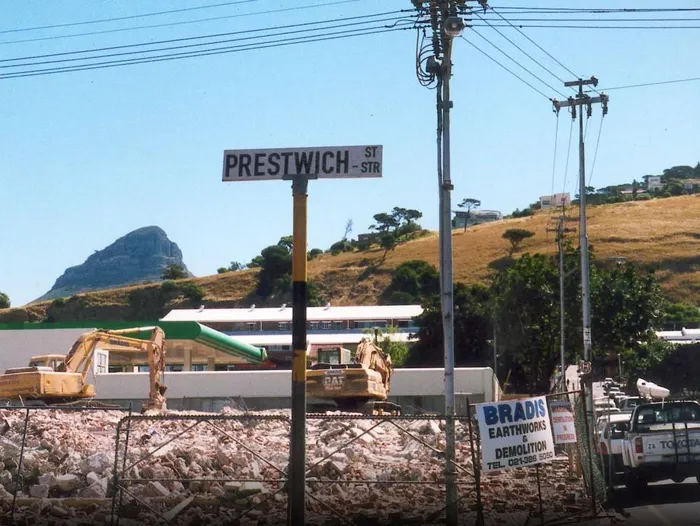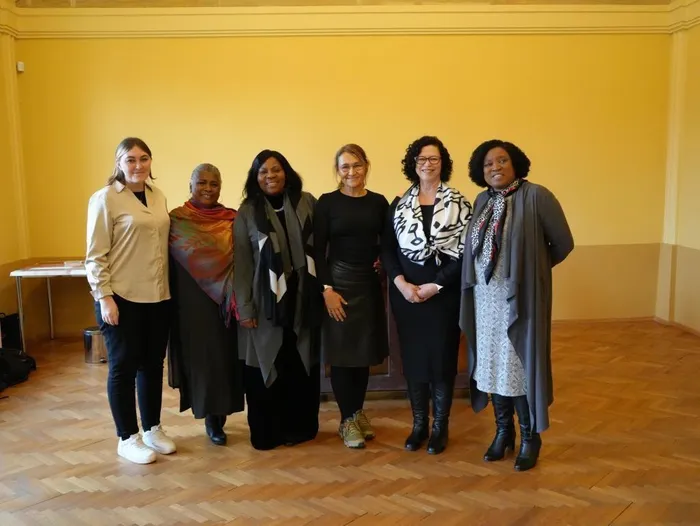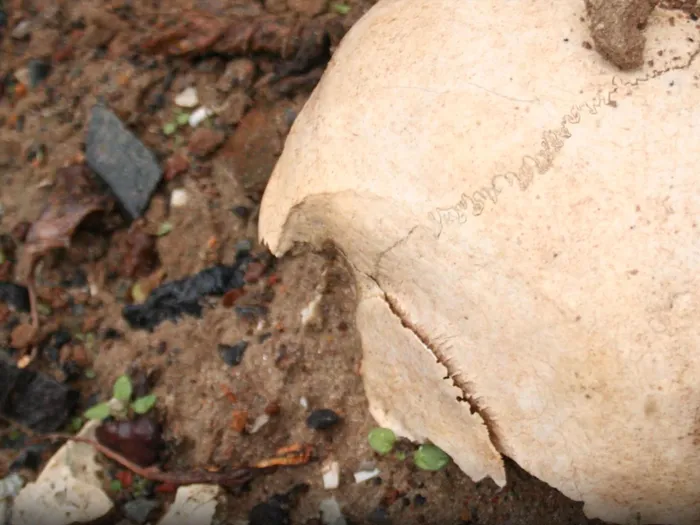UnRest: a documentary confronting colonial legacies in post-apartheid archaeology

The construction site in Prestwich Street, where human remains were found.
Image: Supplied
The haunting echoes of colonial history have been brought into sharp focus across Europe with the recent premiere of a powerful new documentary, 'UnRest'. Directed by Professor Siona O’Connell from the University of Pretoria's Faculty of Humanities, the film compels audiences to confront the fundamental struggle for dignity and recognition embedded within post-apartheid archaeology.
The documentary, which had its European premiere at Charles University in Prague, revisits a pivotal, contentious moment from 2003 when human remains—believed to belong to enslaved and displaced individuals from the 18th and 19th centuries—were unearthed at Prestwich Street in Green Point, Cape Town.
Ancestors or artefacts?: the Prestwich Street struggle
The discovery ignited a fierce debate, pitting institutional archaeologists against local community groups. The latter argued passionately for the remains to be acknowledged as ancestors—not merely scientific artefacts.
As Professor O’Connell poignantly states, the tensions arising from this incident expose a critical flaw in post-apartheid practice: an assertion of institutional authority that frequently overlooks the profound spiritual and cultural significance communities attach to these remains.
“The Prestwich Street discovery revealed how post-apartheid archaeology failed to decolonise its epistemological frameworks,” Prof O’Connell argues. “This tension between institutional power and communal memory aligns directly with the COLUMN project’s examination of how many universities reproduce colonial legacies, making the film a vital contribution to interrogating academic complicity in perpetuating historical injustices.”
Challenging colonial narratives and academic complicity
O’Connell, a leading South African voice on memory, restitution, and visual culture, brings her extensive experience to UnRest. Her previous works have consistently tackled issues of displacement, belonging, and the ethics of representation. Crucially, she is keen to ensure that the decolonial dialogue extends beyond the academic sphere, engaging directly with ethical considerations and fostering necessary community dialogue.
She explains that the unresolved tensions seen at Prestwich Street—where human remains are treated as scientific specimens versus recognised as ancestors—persist globally. “The memorial ossuary’s present condition exemplifies incomplete transformation: institutions still struggle to redistribute epistemic authority from academic expertise to community custodianship,” she notes.
In this respect, the film stands as a crucial call to action, urging viewers to recognise the direct relevance of historical injustices to today's fight for social justice.

The Prague Premiere: Dr Dominique Wnuczek-Lobaczewski, Dr Bonita Bennett, Ambassador Mosa Sejosingoe, Prof Siona O'Connell, Prof Loretta Feris and Namhla Gigaba.
Image: Supplied
Global partnerships confronting institutional legacies
UnRest is more than a standalone documentary; it is an integral part of the COLUMN initiative—a multi-partner, transnational project exploring how universities, across both Europe and the Global South, can actively confront their colonial legacies.
COLUMN’s mission is to examine lingering colonial influences within academic institutions, from anthropological collections and botanical gardens to campus architecture and teaching methodologies, with the aim of birthing new educational practices that elevate historically marginalised voices.
The project, co-funded by the European Union’s Horizon Europe Programme and the Swiss State Secretariat for Education, Research and Innovation, includes top international institutions such as Utrecht University and the University of Bologna, with the University of Pretoria (UP) as a leading partner. Within this collaborative framework, UnRest perfectly embodies the socially engaged, cross-disciplinary work that COLUMN seeks to promote, seamlessly blending visual storytelling with sharp academic critique.

Human remains uncovered during construction at Prestwich Street, Cape Town.
Image: Supplied
A call for reflection and dignity
The Prague premiere, which featured a keynote address by UP Vice-Principal Professor Loretta Feris, prompted deep engagement with the themes of memory and institutional responsibility.
“The screening not only symbolises an important link between European and African academic legacies but also challenges Northern institutions to acknowledge their ongoing complicity in colonial structures,” Prof O’Connell articulately stated. The film’s core message advocates for a vital shift: from passively observing to actively participating in decolonisation.
Following its successful European debut, the film is set for its South African premiere on 22 November. It is highly anticipated to stimulate essential public discourse on how the nation commemorates its enslaved and displaced ancestors.
As O’Connell affirms, “The film should promote reflection on whether academic 'neutrality' perpetuates harm when silence becomes complicity. It invites us to honour the humanity denied to those who came before and work towards futures built on dignity.”
Related Topics: